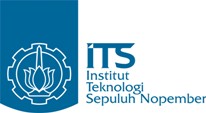Study of The Technical Approach on Recent Fuel Efficiency to Reduce Ship Emissions
Abstract
Keywords
Full Text:
PDFReferences
J.-H. Chen[1] Sahoo B B, Sahoo N and Saha U K 2009 Effect of Engine Parameters and Type of Gaseous Fuel on The Performance of Dual-Fuel Gas Diesel Engines—A Critical Review Renew. Sustain. Energy Rev. 13 1151–84
Mousavi SM, Saray R K, Poorghasemi K and Maghbouli A 2016 A Numerical Investigation on Combustion and Emission Characteristics of A Dual Fuel Engine at Part Load Condition Fuel 166 309–19
Charabi Y, Al Nasiri N, Al Awadhi T, Choudri BS and Al Bimani A 2020 GHG emissions from the transport sector in Oman: Trends and potential decarbonization pathways Energy Strategy. Rev. 32 100548
Henke B, Schleef K, Buchholz B, Andree S, Hassel E, Hoff M and Graumüller R 2018 Pilot Injection Strategies for Medium-Speed Dual Fuel Engines Springer Fachmedien Wiesbaden ed W Siebenpfeiffer (Wiesbaden) pp 115–35
Doukas H, Spiliotis E, Jafari M A, Giarola S and Nikas A 2021 Low-cost emissions cuts in container shipping: Thinking inside the box Transp. Res. Part D Transp. Environ. 94 102815
Mavrelos C and Theotokatos G 2018 Numerical Investigation of A Premixed Combustion Large Marine Two-Stroke Dual Fuel Engine for Optimizing Engine Settings Via Parametric Runs Energy Convers. Manag. 160 48–59
Felayati F M, Semin, Cahyono B and Bakar R A 2021 Numerical investigation of dual-fuel engine improvements using split injection natural gas coupled with diesel injection timings at low load condition Int. J. Eng. Appl. 9 31–8
Cheenkachorn K, Poompipatpong C and Ho C G 2013 Performance and Emissions of A Heavy-Duty Diesel Engine Fuelled with Diesel and LNG (Liquid Natural Gas) Energy 53 52–7
Theotokatos G, Stoumpos S, Lazakis I and Livanos G 2016 Numerical Study of A Marine Dual-Fuel Four-Stroke Engine
Song E, Liu Z, Yang L, Yao C, Sun J and Dong Q 2017 Effects of Nozzle Structure on The Gas Mixture Uniformity of Marine Gas Engine Ocean Eng. 142 507–20
Felayati F M, Semin and Cahyono B 2021 Methane Emissions Evaluation on Natural Gas/Diesel Dual-Fuel Engine during Scavenging Process IOP Conference Series: Earth and Environmental Science vol 698 (IOP Publishing Ltd) p 012036
Liu J, Yao A and Yao C 2015 Effects of diesel injection pressure on the performance and emissions of a HD common-rail diesel engine fueled with diesel/methanol dual fuel Fuel 140 192–200
Heywood J B 1988 Combustion Engine Fundamentals McGraw-Hill B. Co.
Kakaee A-H, Rahnama P and Paykani A 2015 Influence of Fuel Composition on Combustion and Emissions Characteristics of Natural Gas/Diesel RCCI Engine J. Nat. Gas Sci. Eng. 25 58–65
Yang J, Tang T, Jiang Y, Karavalakis G, Durbin T D, Wayne Miller J, Cocker D R and Johnson K C 2021 Controlling emissions from an ocean-going container vessel with a wet scrubber system Fuel 304 121323
Kaffash S, Nguyen A T and Zhu J 2021 Big data algorithms and applications in intelligent transportation system: A review and bibliometric analysis Int. J. Prod. Econ. 231 107868
Wang K, Yan X, Yuan Y, Jiang X, Lodewijks G and Negenborn R R 2017 Study on route division for ship energy efficiency optimization based on big environment data 2017 4th International Conference on Transportation Information and Safety, ICTIS 2017 - Proceedings (Institute of Electrical and Electronics Engineers Inc.) pp 111–6
Moreira L, Vettor R and Soares C G 2021 Neural network approach for predicting ship speed and fuel consumption J. Mar. Sci. Eng. 9 1–14
Kim S H, Roh M Il, Oh M J, Park S W and Kim I Il 2020 Estimation of ship operational efficiency from AIS data using big data technology Int. J. Nav. Archit. Ocean Eng. 12 440–54
Pan P, Sun Y, Yuan C, Yan X and Tang X 2021 Research progress on ship power systems integrated with new energy sources: A review Renew. Sustain. Energy Rev. 144 111048
Dedes E K, Hudson D A and Turnock S R 2016 Investigation of Diesel Hybrid systems for fuel oil reduction in slow speed ocean going ships Energy 114 444–56
Reusser, C.A.; Pérez Osses, J.R. Challenges for Zero-Emissions Ship. J. Mar. Sci. Eng. 2021, 9, 1042. https://doi.org/ 10.3390/jmse9101042
Chu S, Lee J, Kang J, Lee Y and Min K 2018 High Load Expansion with Low Emissions and The Pressure Rise Rate By Dual-Fuel Combustion Appl. Therm. Eng. 144 437–43
García A, Monsalve-Serrano J, Villalta D and Sari R 2019 Fuel Sensitivity Effects on Dual-Mode Dual-Fuel Combustion Operation for Different Octane Numbers Energy Convers. Manag. 201 112137
Meng X, Tian H, Zhou Y, Tian J, Long W and Bi M 2019 Comparative Study of Pilot Fuel Property and Intake Air Boost on Combustion and Performance in The CNG Dual-Fuel Engine Fuel 256 116003
Ouchikh S, Lounici M S, Tarabet L, Loubar K and Tazerout M 2019 Effect of natural gas enrichment with hydrogen on combustion characteristics of a dual fuel diesel engine Int. J. Hydrogen Energy 44 13974–87
DOI: http://dx.doi.org/10.12962%2Fj25481479.v7i1.11789
Refbacks
- There are currently no refbacks.
 |  |  |  |
| |  |  |
|
|
|
|
|
P-ISSN: 2541-5972
E-ISSN: 2548-1479
IJMEIR journal published by Department of Marine Engineering, Faculty of Marine Technology, Institut Teknologi Sepuluh Nopember Surabaya Indonesia under licenced Creative Commons Attribution-ShareAlike 4.0 International Licence. Based on https://iptek.its.ac.id/index.php/ijmeir/


1.png)
